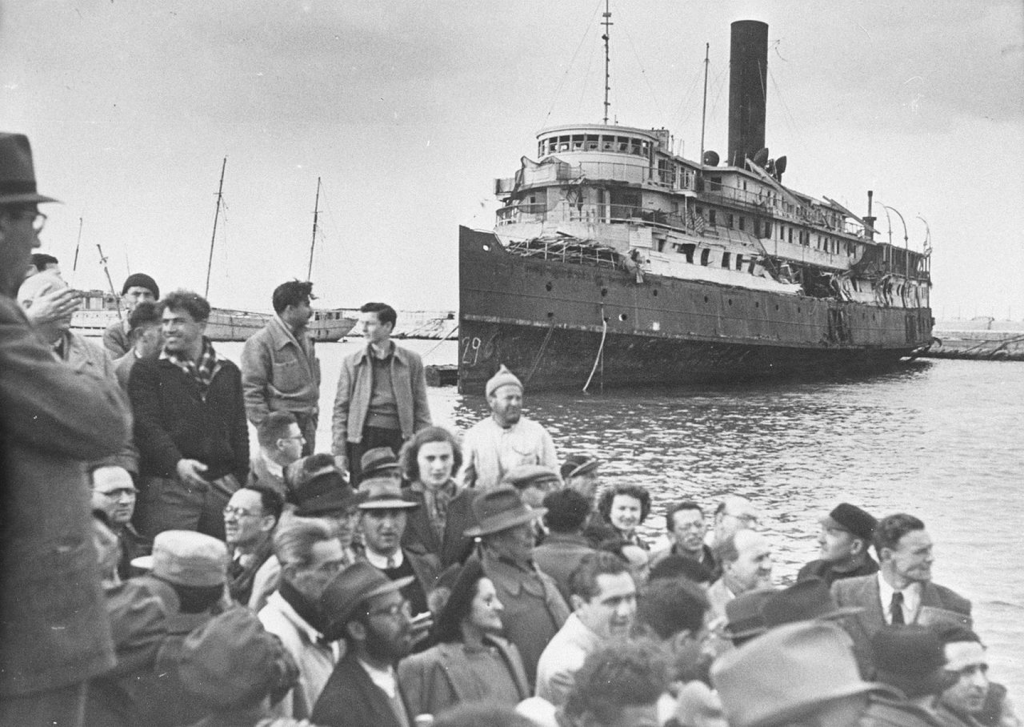Tatjana Eichert is a fourth year PhD candidate in the International History Department researching 'Encounters between German-speaking Jewish immigrants and Arab Palestinians in British Mandate Palestine' from 1920 to 1948. In this interview, Tatjana details her research and describes how she was drawn to this subject.
What is your research concerned with?
My PhD thesis examines the experiences of Jews who left Germany for British Mandate Palestine during the 1920s and 1930s. More specifically, the project focuses on their encounters with the Arab inhabitants of Mandate Palestine. With my dissertation, I aim to challenge conventional narratives of the history of British Mandate Palestine that presuppose the existence of coherent, homogenous entities among Jewish and non-Jewish populations in the mandate. Instead, I want to highlight the multi-ethnic and multi-religious character of society in British Mandate Palestine. The research objective is twofold. First, the thesis examines the extent and nature of these encounters in the context of the specific experience of migration and displacement of German Jews. Second, the project will show how these encounters fit into the larger framework of Arab-Jewish relations during the mandate era.
How have you been going about it?
My dissertation project draws on a selection of archival and published material from a broad range of sources, such as diaries, letters, memoirs, travel literature and newspaper articles mostly produced by German-speaking Jews themselves and therefore written in German, which is my native language. Finding and accessing the unpublished material is not easy because it is scattered among various collections held by libraries and archives in Europe and Israel. This is a methodological challenge faced by many scholars who work on actors whose life trajectories do not fit the categories of nation archive structures.
Although I find primary sources of German-speaking Jews in Palestine to be rich in description and in their accounts of encounters with the Arab population, historical scholarship on this issue is still emerging. Moreover, a comprehensive overview of the history of German-Jewish life in Mandate Palestine is still missing. Fortunately, there exists a vast amount of related literature on the history of British Mandate Palestine, Arab-Jewish relations, and more general histories of (forced) migration and cultural and colonial encounters. Of course, the growing academic research on German-Jewish history is also invaluable for my understanding of German Jewish-Arab encounters. It includes works on the approach to the ‘Arab Question’ of organisations like the Zionist Federation of Germany or prominent Jewish thinkers as well as cultural histories that investigate the acculturation struggles and identity construction processes struggles these German Jews underwent in an inter-Jewish context.
What led you to focus on this particular set of issues?
My interest in this issue has been sparked by my work on my master’s thesis at the University of Heidelberg in which I examined the international responses to the problem of stateless displaced persons (DP) in Europe after the Second World War. During my research, I came across stories of Jewish DPs who prepared for emigration to Palestine. To my surprise, in one diary a Jewish woman mentioned her language training to not only include Hebrew but also basic Arabic. This intrigued me because until then, I had assumed Jewish immigrants to Palestine settled in exclusively Jewish environments. When I realised that my understanding of Arab-Jewish relations in Mandate Palestine was far too simplistic, I was curious to learn more about the complexities involved. Moreover, given my research background in refugee history, I have a strong interest in the question of how migrants and refugees make sense of their displacement and acculturate into their destination country, which are also underlying questions in my dissertation project.
******
Image: The Palmach Archive


